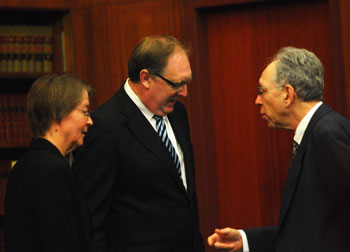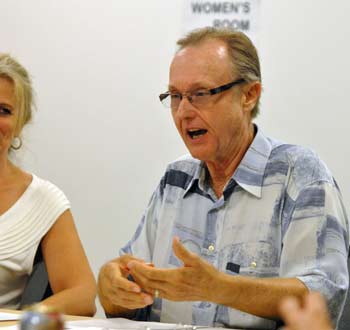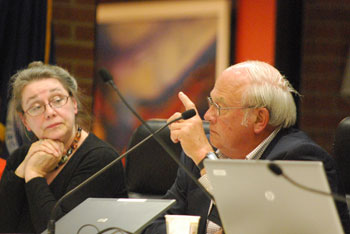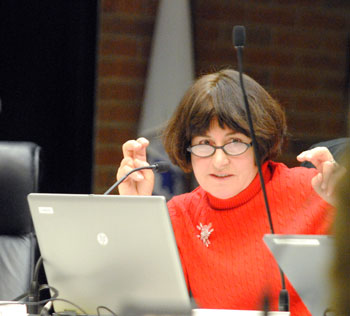“I’m smarter than you.”
That’s an idea that defines the character of Ann Arbor better than anything you might read in a brochure, or see in a Pure Michigan video.

Photo by Ward 2 Ann Arbor councilmember Jane Lumm, taken in summer 2012. She reports that a ranger at the Grand Canyon identified the bird as a condor. The plausibility of this being a condor has also been checked by a guy I know who is way smarter about birds than I am.
If you didn’t already know that, well, I guess that makes me … an Ann Arbor resident.
Besides writing op-ed pieces adorned with footnotes [1], another way Ann Arbor residents prove they are smarter than you is to deploy extraordinary words you’ve never heard before, possibly from a dead language – with an ever-so-slightly aggressive nonchalance, calculated to elicit from their listeners some kind of concession like “I’m sorry, but I’m not familiar with that term.” [Alternatively, super-long, syntacticky sentences.]
And then the conversation may continue along the lines of, “Oh, I’m sorry – I thought that expression was so common. But there I go again, just assuming that everyone is as … much a resident of Ann Arbor as I am.”
And those of us who observe these interactions, which depend on a carefully scripted casualness, wonder smugly to ourselves, “Does he not realize everyone can see exactly what he’s doing? I mean, it’s like he thinks he’s the only … person who lives in Ann Arbor!”
Many elected officials in Ann Arbor have a variant on this gambit, which involves not extraordinary bits of vocabulary, but perfectly regular words – to which some special technical sense is given, outside of any reasonable expectation. By way of example, the word “regular” itself has (apparently) a technical sense that can transform a special meeting of the city council into a “regular meeting.” That technical sense of “regular meeting” can be paraphrased roughly as: Any meeting the city council chooses to label as “regular” by voting to label it as such in a formal resolution. [2]
Given that we all live here in Ann Arbor – i.e., we are all smarter than each other – local governance leads to arguments about the meaning of words, even those that are perfectly ordinary. By way of additional examples (beyond “regular” and “special”) these pairs might sound familiar to some readers: “sell” versus “lease”; “opinion” versus “memo” [3]; “committee” versus “work group” [4].
But at the most recent meeting of the city council, on Aug. 20, 2012, part of the argument at the council table depended crucially on the meaning of the word “many.” I’m not making that up. Carsten Hohnke (Ward 5) disputed a contention made by Jane Lumm (Ward 2) that began “Many Ann Arbor residents believe …” The nature of their disagreement can, I think, be analyzed in terms of a numerical understanding of “many” compared to a proportional one.
It’s actually a standard puzzle from the sub-field of linguistics called semantics, which I have studied at an institution of higher learning. Otherwise put, I live here in Ann Arbor even more than you do. And the standard example sentence used by semanticists to illustrate the meaning of “many” involves condors.
So let’s begin with a treatise on condors. The bird with the Latin name Gymnogyps californianus … Heh. I’m kidding.
By “kidding” I mean “not actually totally kidding.” See, you need to understand something about condors before you can understand the example. One thing you probably already know is that condors don’t live in Ann Arbor. [Full Story]












